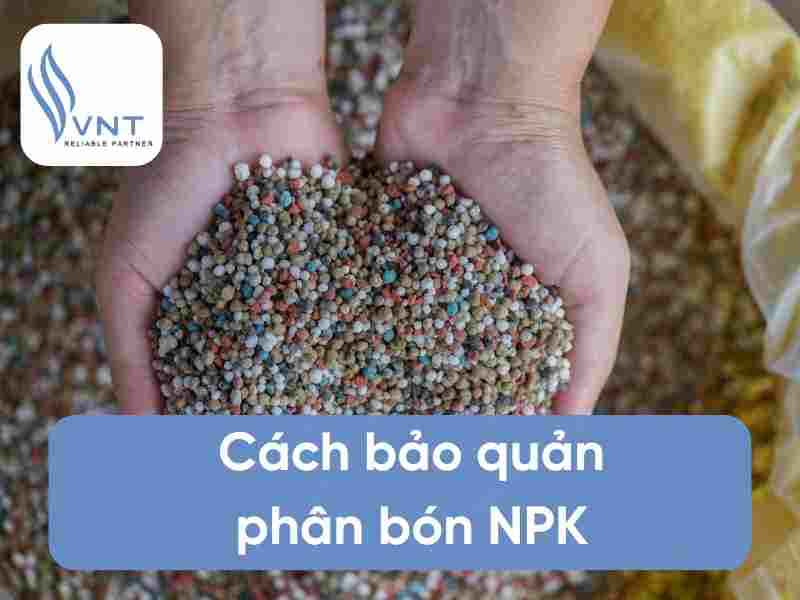What is NPK fertilizer? Effects and effective usage
What is NPK fertilizer? What effect does NPK fertilizer have on plants? Especially when this type of fertilizer is favored and used by many people. Let's join VNT company to learn more about the most popular fertilizer line today in the article below.
What is the concept of NPK fertilizer?
NPK fertilizer is a synthetic fertilizer of the three most basic nutrients - Nitrogen, Phosphorus and Potassium, which helps plants achieve high yields. Each component in this fertilizer provides indispensable benefits for the growth and development of plants:
- Nitrogen (N): is the most important component for the development of leaves, stems and genetic structure of plants. Nitrogen deficiency can cause leaves to turn yellow, leading to slow growth and low yield.
- Phosphorus (P): is essential for root development, helping to improve the ability to absorb water and nutrients from the soil. It also promotes flowering and fruiting, creating comprehensive growth for plants.
- Potassium (K): plays an important role in improving resistance to harmful agents from the environment. At the same time, it helps plants synthesize necessary nutrients, enhancing the quality of agricultural products.
According to statistics from the Ministry of Agriculture and Rural Development of Vietnam, the rate of using NPK fertilizer has increased by about 6% per year. This is due to the increasing demand from farmers to increase crop productivity.
NPK fertilizer is not only used for food crops, but is also widely used in growing flowers, ornamental plants and fruit trees. The ratio of elements in NPK fertilizer is not fixed but changes depending on the nutritional needs of each type of crop.

What is NPK fertilizer?
What are the effects of NPK fertilizer?
NPK fertilizer is not only a source of nutrients, but also the key to sustainable development in agriculture. The characteristic of this fertilizer is its ability to positively affect the growth of all aspects of crops.
Here are the effects of common NPK fertilizers that farmers need to know:
- Enhance plant growth: With the presence of three basic nutrients, plants will grow evenly in both height and mass. Nitrogen helps plants grow better, while Phosphorus and Potassium help plants produce better quality flowers and fruits.
- Improve resistance: Potassium in NPK fertilizers helps improve the plant's resistance to harsh conditions such as drought, pests or fungi. This is especially important in the context of current climate change.
- Improve productivity and quality of agricultural products: NPK not only increases the quantity of products but also improves the quality of agricultural products such as size, color, flavor. Agricultural products that are properly fertilized can achieve higher commercial value.
- Improve soil health: NPK fertilizers help improve soil structure by enriching beneficial microorganisms, thereby creating favorable conditions for long-term development of cultivated land.
- Save costs: The reasonable use of NPK fertilizers helps farmers save investment costs, increase agricultural income through improving crop yields.
NPK fertilizers have become an indispensable part of the farming process of farmers not only in Vietnam but also around the world. Understanding the effects of NPK helps farmers apply it correctly and effectively to have a successful crop.
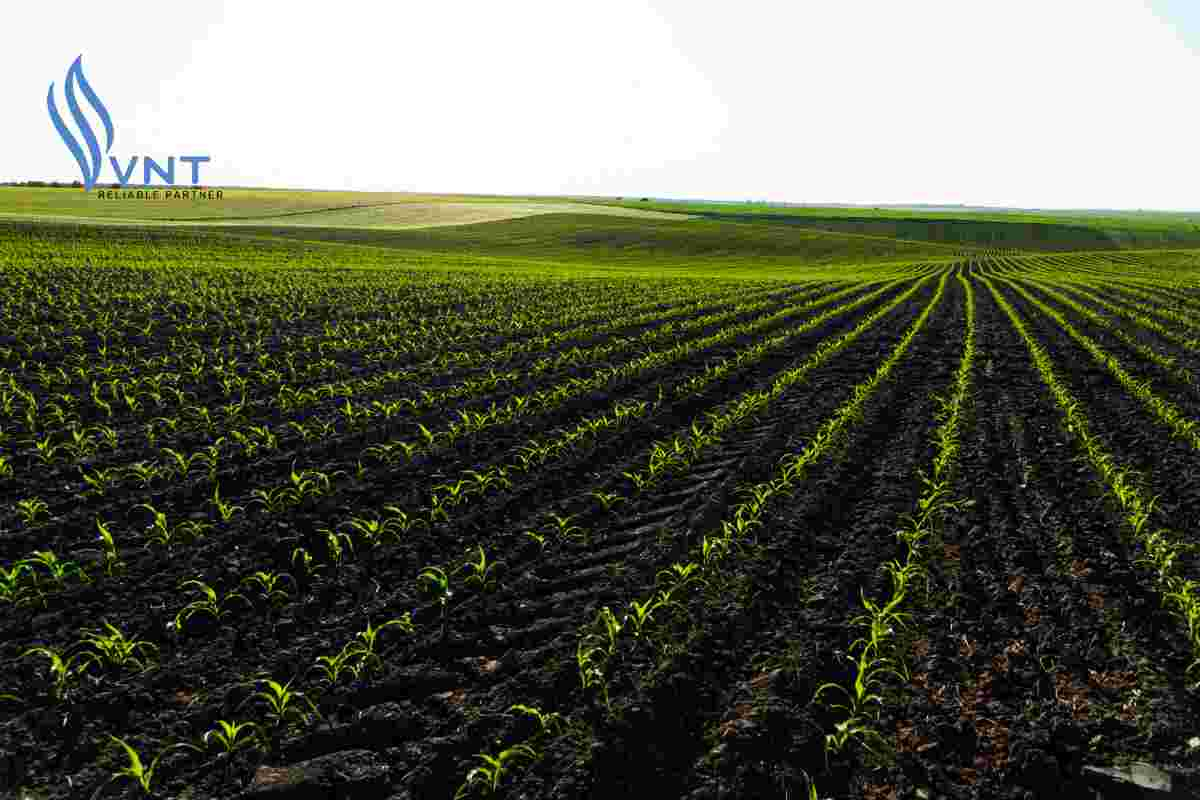
What is the effect of NPK fertilizer?
NPK ratio in fertilizer and its impact on crops
The NPK ratio in fertilizer is not fixed but varies depending on the type of crop and its growth stage. Choosing the right fertilizer formula has a great impact on the health and yield of crops.
Impact of NPK ratio on crops:
- Enhance growth: High N ratio in fertilizer will promote height growth and leaf quantity, while high P ratio will improve root system and flowering.
- Agricultural product quality: The balance between N, P, K helps improve the quality of agricultural products, increase resistance to pests and harsh weather conditions.
- Adapting to each type of crop: Choosing the right ratio will help plants grow optimally, corresponding to the nutritional requirements of each variety.
Understanding the ratio and effects of NPK in fertilizers will help farmers have a bumper crop, high quality agricultural products and improve economic life.
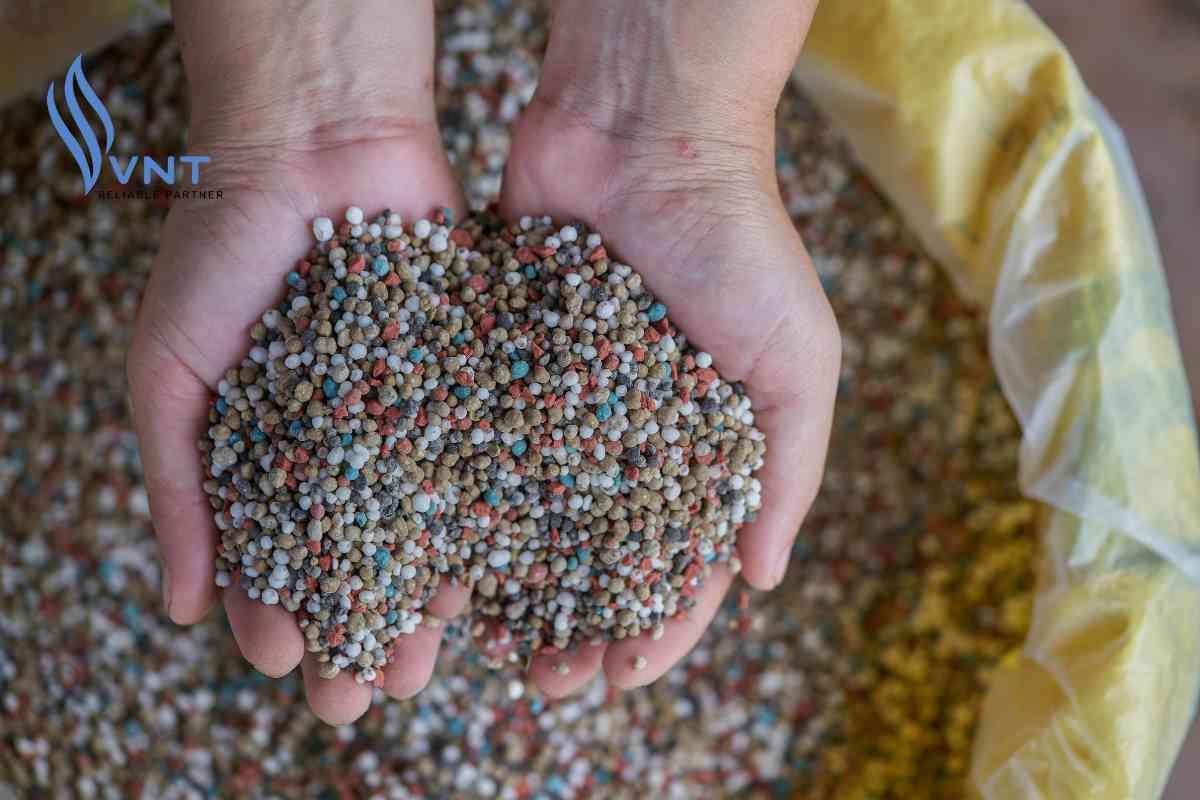
NPK ratio in fertilizer and its impact on crops
How to use NPK fertilizer effectively
To use NPK fertilizer effectively, farmers need to understand how to fertilize as well as the factors that affect the absorption of nutrients by crops.
Here are some specific instructions for your reference:
- Choosing the right type of fertilizer: First, determine the nutritional needs of the crop. As mentioned, each type of plant has a different nutritional need. Choosing an NPK product with the right ratio will be the premise for sustainable development.
- Fertilize in the right dosage: According to recommendations, farmers should fertilize according to the ratio stated on the product packaging or according to instructions from agricultural experts. The dosage issue will directly affect the health and productivity of crops. Fertilizing too little can cause deficiencies, while fertilizing too much can poison the plant.
- Fertilizing time: Fertilizing at the right time is very important. Fertilizer application should be divided into several stages throughout the plant's growth process.
Other notes when using NPK:
- Avoid fertilizing when the weather is unfavorable: Fertilizing when the weather is cool and dry is ideal. When the sun is hot or it rains heavily, plants have difficulty absorbing nutrients effectively.
- Uniform fertilizer with soil: Fertilizer should be mixed evenly with soil at a depth of about 15-20 cm for easy absorption by plants.
Following the instructions correctly will help plants grow strongly, increase productivity and quality of agricultural products. Thereby creating conditions for farmers to achieve the best results from cultivation.
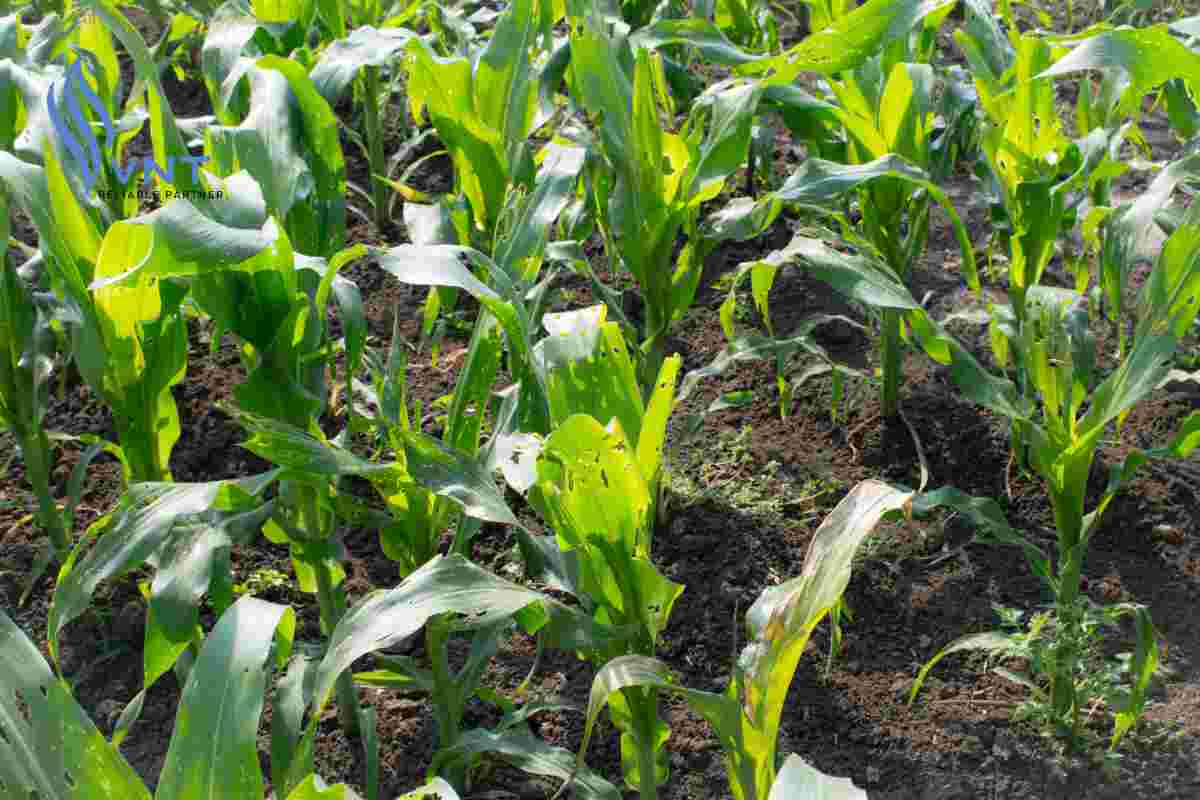
How to use NPK fertilizer effectively
Optimal time to fertilize NPK for plants
The time to fertilize NPK is not only a matter of time but also related to the development of plants at different stages. Here are some fertilizing times to pay attention to:
- Before planting: This is an important time to apply NPK fertilizer to provide nutrients to the soil, helping plants have a good foundation when they start to grow.
- Seedling stage: When the plant has just emerged from the soil, it is necessary to fertilize to help the plant start to grow well. At this time, fertilizers with a high N ratio should be used.
- Vegetative stage: The plant begins to grow rapidly, needing to add more nitrogen to support the creation of good green leaves and large stems.
- Flowering and fruiting stage: This is an important time, needing to add phosphorus and potassium to help the plant flower evenly and bear fruit better.
Fertilizing at the right time will optimize the plant's nutrient absorption process, improving the quality and yield of agricultural products. Farmers need to monitor the growth of the plant to adjust the fertilization time appropriately.
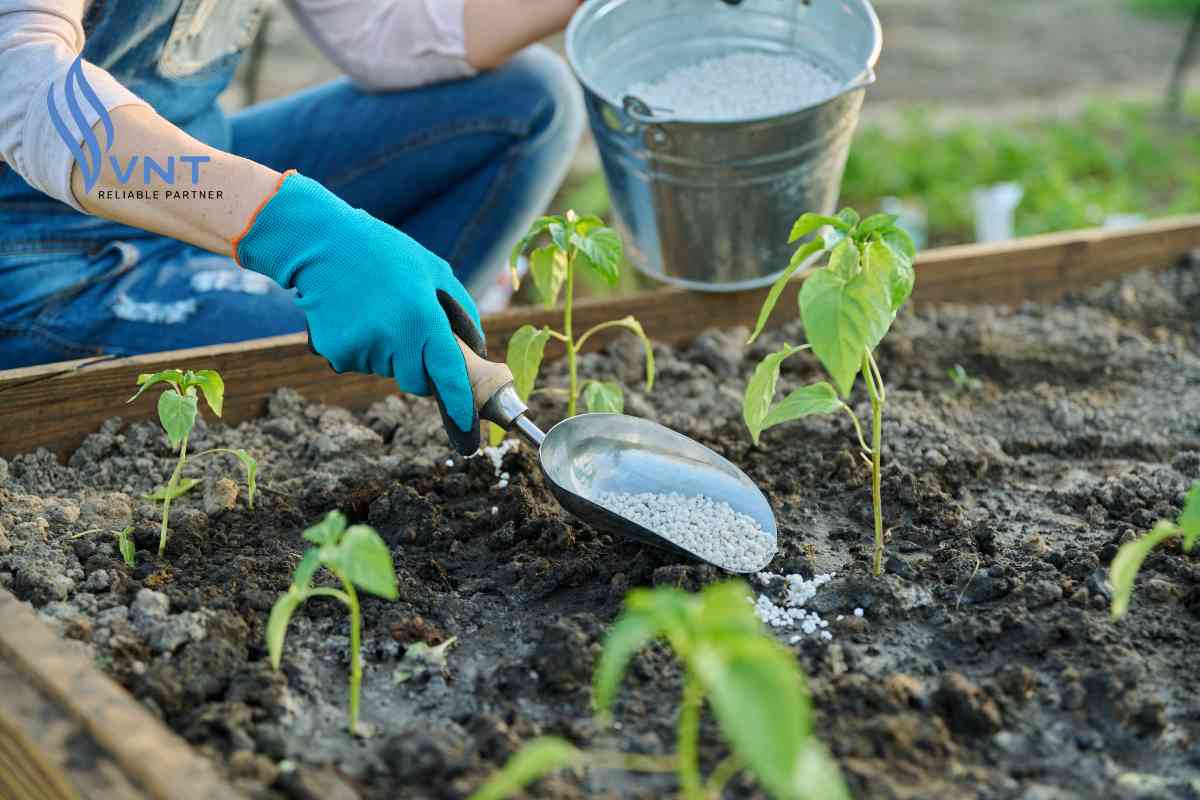
Optimal time to apply NPK fertilizer to plants
NPK fertilization processes
To apply NPK fertilizer effectively, farmers need to master the appropriate fertilization process, including basal fertilization and top dressing.
Here are the expanded instructions for each process:
- Basal fertilization stage: This is usually done 2 to 3 weeks before planting. NPK fertilizer should be mixed well with the soil to provide adequate nutrients from the beginning. Depending on the soil type and crop, the amount of basal fertilizer may vary, but make sure it is applied evenly.
- Top dressing stage: After the plant has been planted in the soil, you need to distinguish the different stages in the plant's development to fertilize appropriately. These stages include:
- Seedling stage: Apply a small amount of NPK, usually 1-1.5 kg/100m² to ensure the plant grows as strongly as possible.
Vigorous growth stage: When the plant has grown well, you will need to increase nitrogen fertilization to make the plant more vigorous, up to 2 kg/100m². - Flowering and fruiting stage: At this time, the plant needs Phosphorus and Potassium to produce beautiful flowers and fruits, you need to provide it with enough amount to make everything go smoothly.
- Check and adjust: Based on the growth of the plant, you need to check to see if the plant needs more nutrients. Do not arbitrarily add more fertilizer when you are not sure that the plant really needs it.
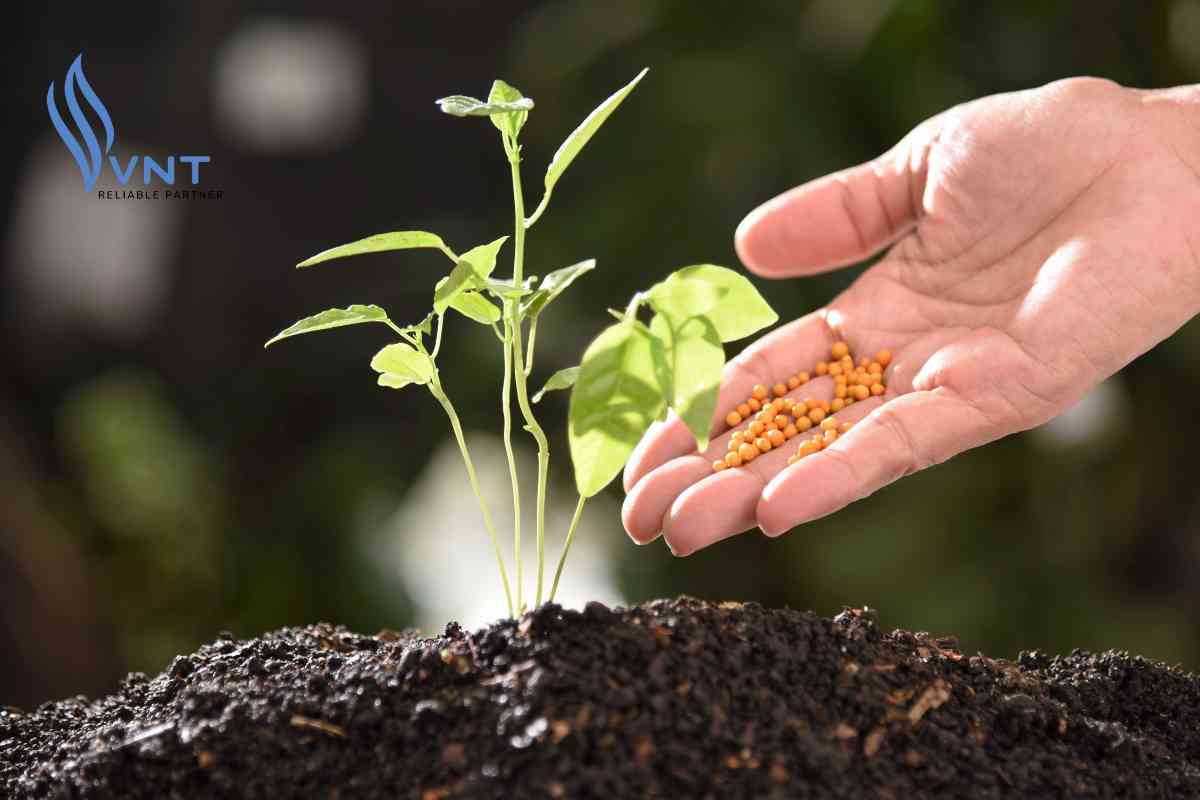
NPK Fertilizer Application Processes
Notes When Using NPK Fertilizers
Using NPK fertilizers is not simply spreading fertilizer on the soil, but also involves many different factors to ensure maximum efficiency. Here are some important notes that you need to remember:
- Correct dosage: Always follow the recommended dosage to avoid fertilizer poisoning or not receiving enough nutrients.
- Fertilization time: As mentioned, fertilizing at the right time is very important. The fertilization time must be considered with the physiological needs of the plant, to achieve the highest efficiency.
- Climate and weather: Avoid fertilizing on hot sunny days or when there is heavy rain or storms. Heavy rain can wash away most of the nutrients, and hot sun can be harmful to plants.
- Mix well with soil: Fertilizer should be mixed with soil at a depth of about 15-20 cm so that plants can absorb it more easily.
- Monitor plant growth: After fertilizing, monitor plant growth to make timely adjustments.
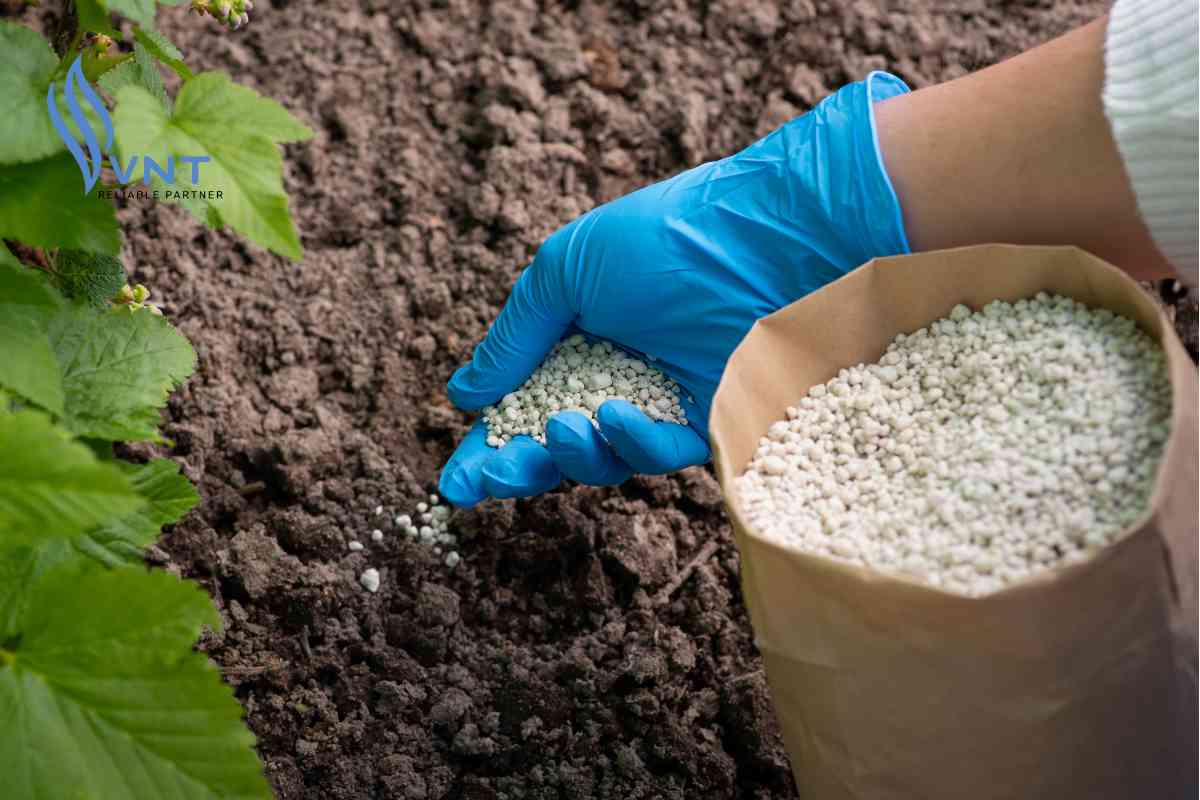
Notes when using NPK fertilizer
Top best NPK fertilizers today
NPK 20-20-20
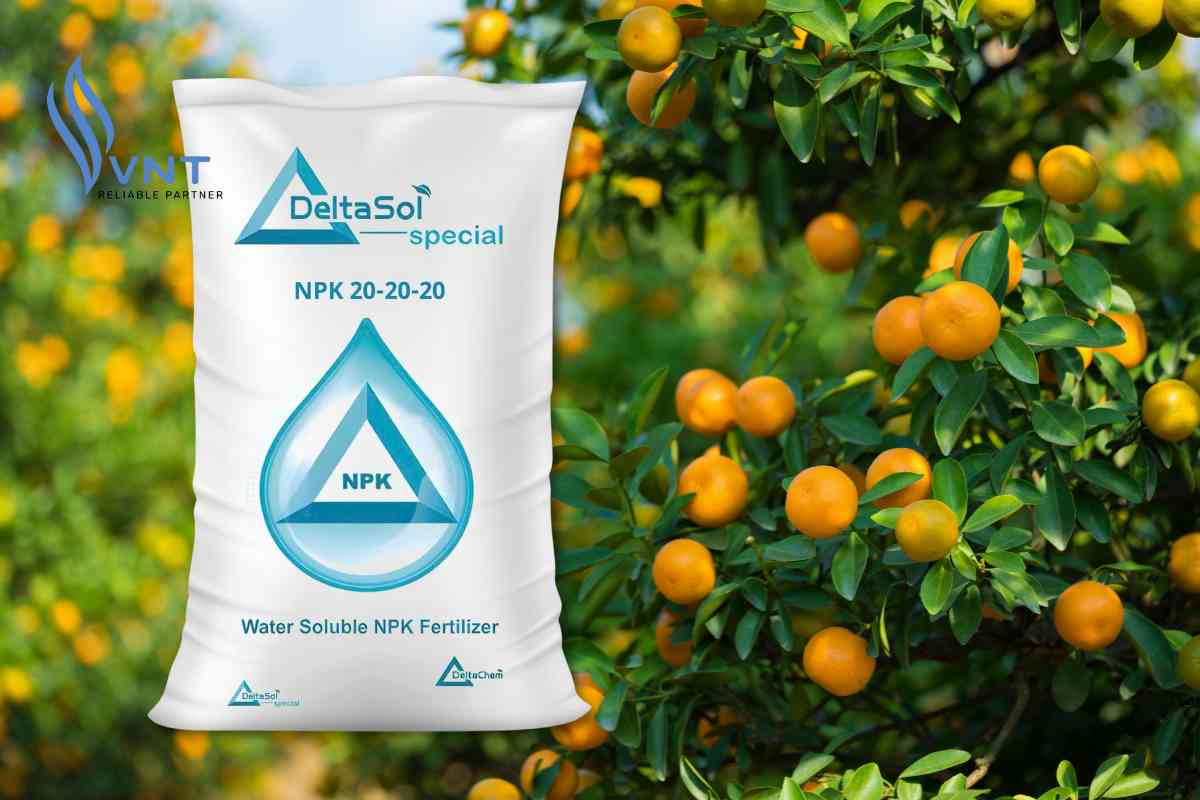
NPK 20-20-20
>> See product details here
NPK 30-10-10
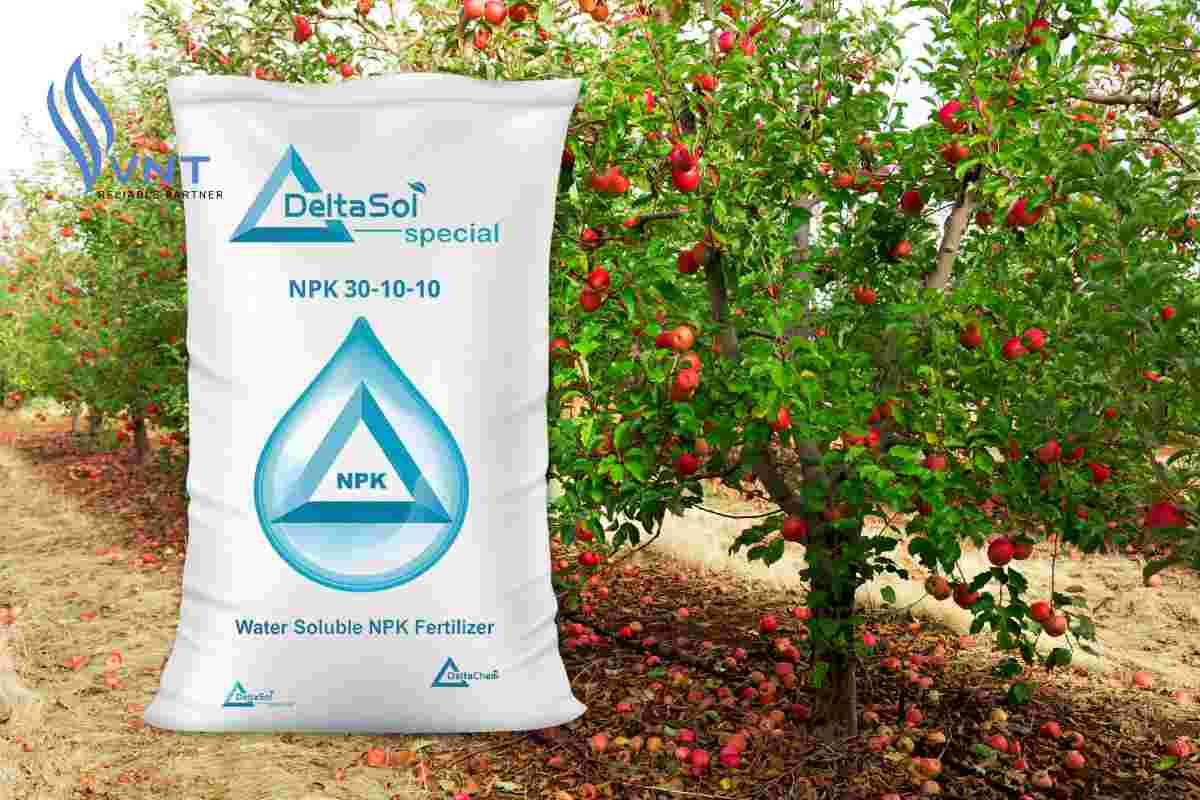
NPK 30-10-10
>> See product details here
NPK 7-7-44
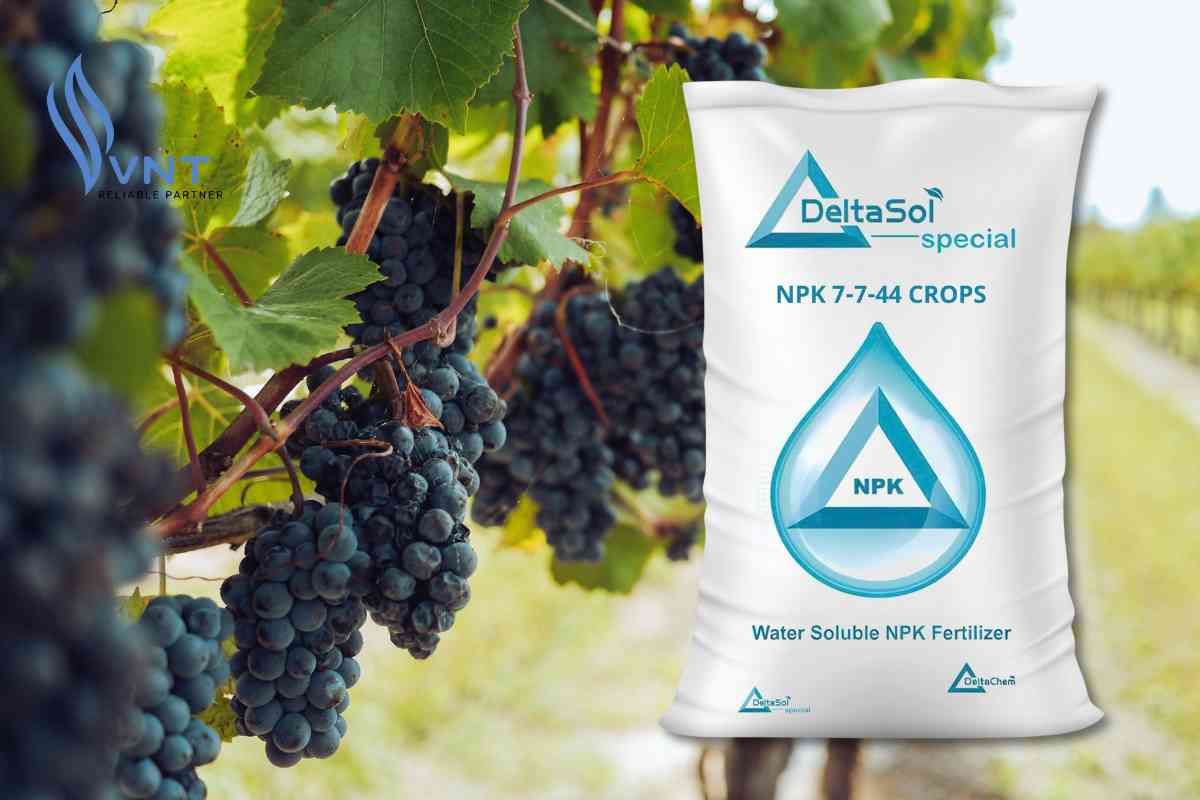
NPK 7-7-44
>> See product details here
NPK 10-50-10
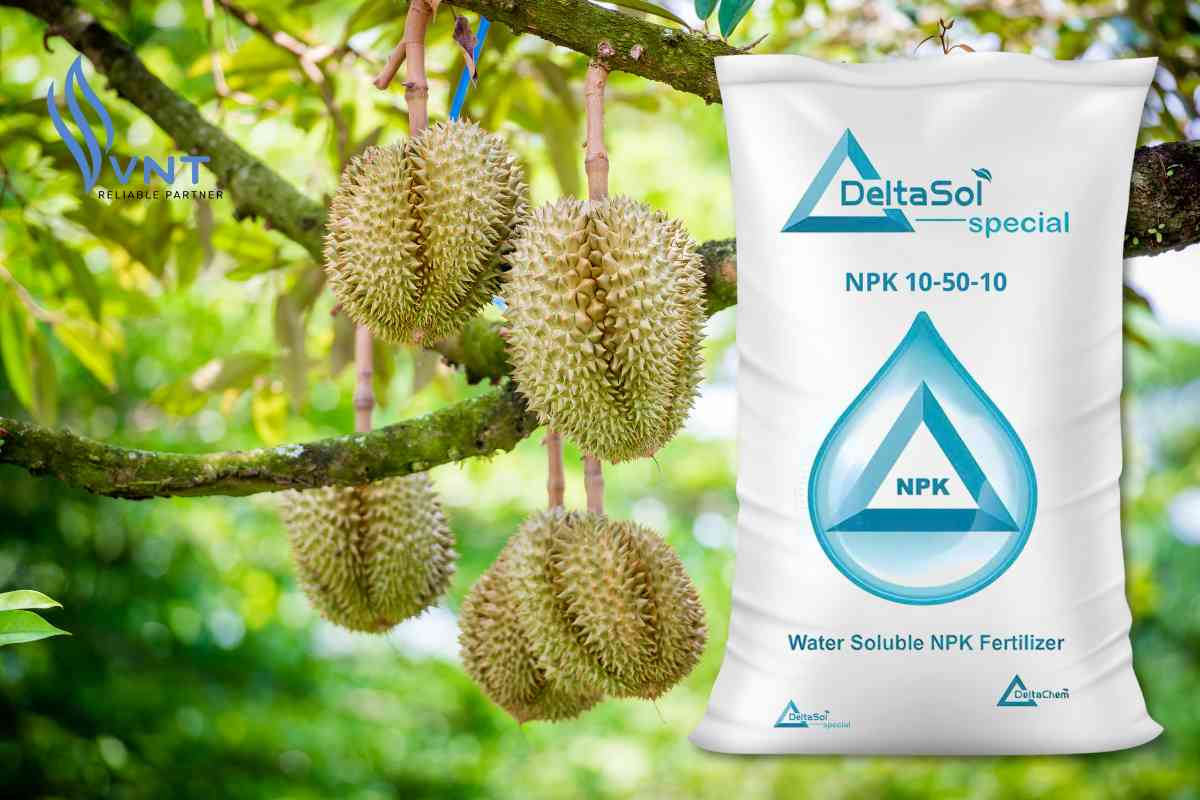
NPK 10-50-10
>> See product details here
Conclusion
NPK fertilizers are increasingly developing, playing an important role in the agricultural sector. Understanding the ingredients, effects and how to use NPK will help farmers have more effective tools to improve production. Hopefully, this article will help readers answer the question "What is NPK fertilizer".
You are looking to buy quality organic and inorganic fertilizers from reputable brands in the world. VNT Company is the top choice for you. VNT provides all kinds of organic and inorganic fertilizers for crops.
Advantages of buying at VNT
- Distributing, importing and exporting all kinds of fertilizers for all types of crops.
- Always ensure timely support for you in the process of production and cultivation.
- A team of professional and experienced staff, always on hand to answer all questions when customers.
- Continuously improving and upgrading with careful investment in equipment, machinery, and warehouse scale.
- VNT Chemicals is always a reliable address, Always bringing value to customers.
Contact for more details
VNT IMPORT EXPORT TRADING JOINT STOCK COMPANY
Business registration number 0104188003 issued by the Department of Planning and Investment of Hanoi on September 30, 2009
Address: Hamlet 3, Hai Boi Village - Hai Boi Commune - Dong Anh District - Hanoi.
HN Office: Room 1304, CT2-VIMECO Building, Nguyen Chanh, Trung Hoa, Cau Giay, Hanoi.
HCM Office: No. 68B, Nguyen Van Troi, Phu Nhuan District, Ho Chi Minh City.
Hotline 1: 0904616638
Hotline 2: 02466543183
Email: tuyennv@vntradimex.com
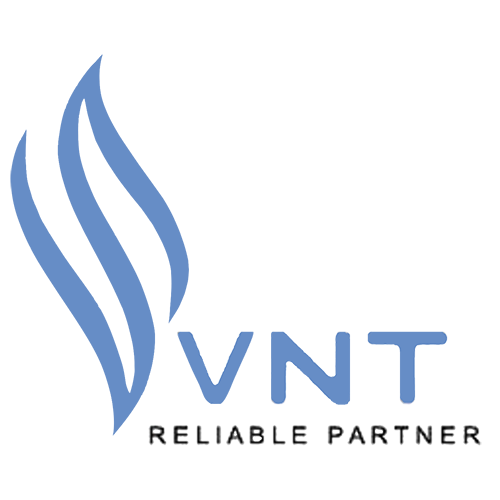


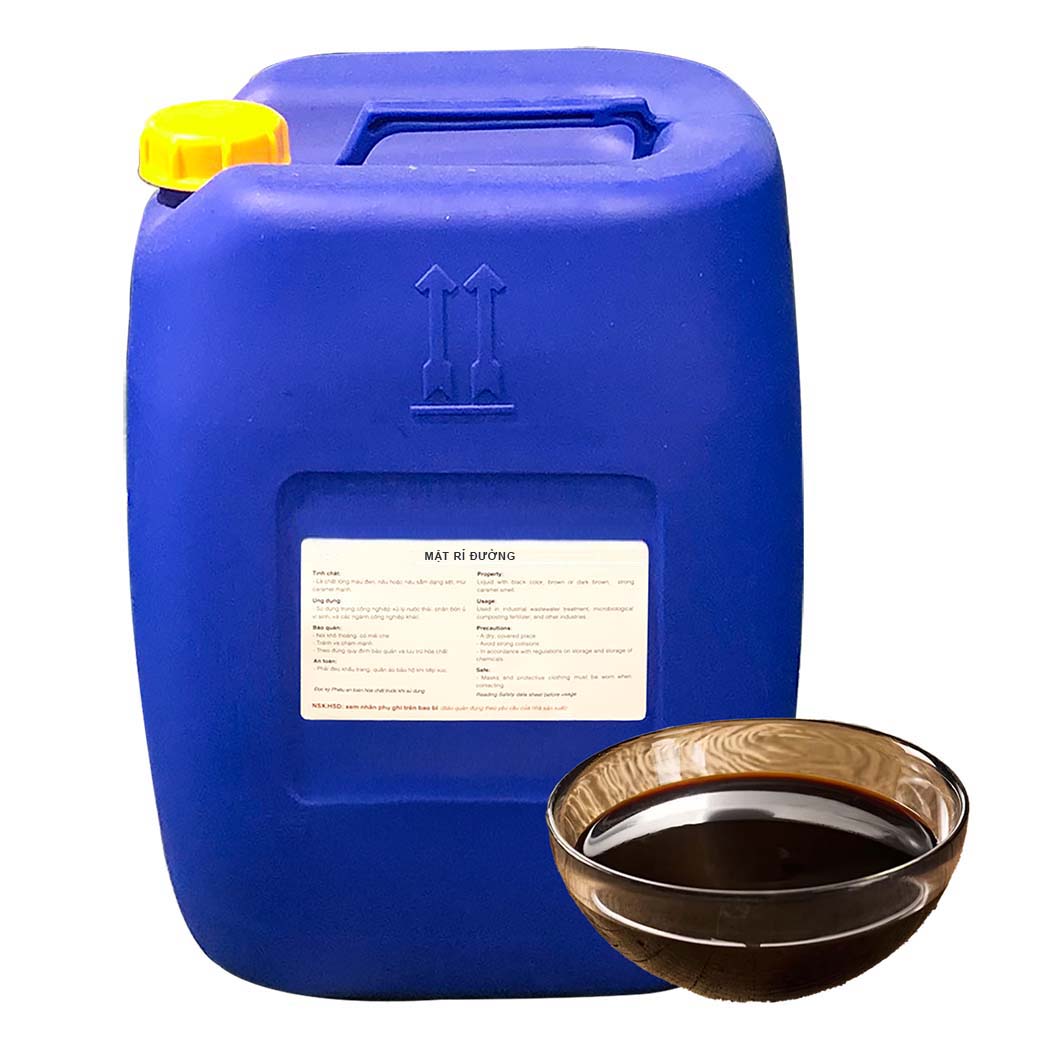
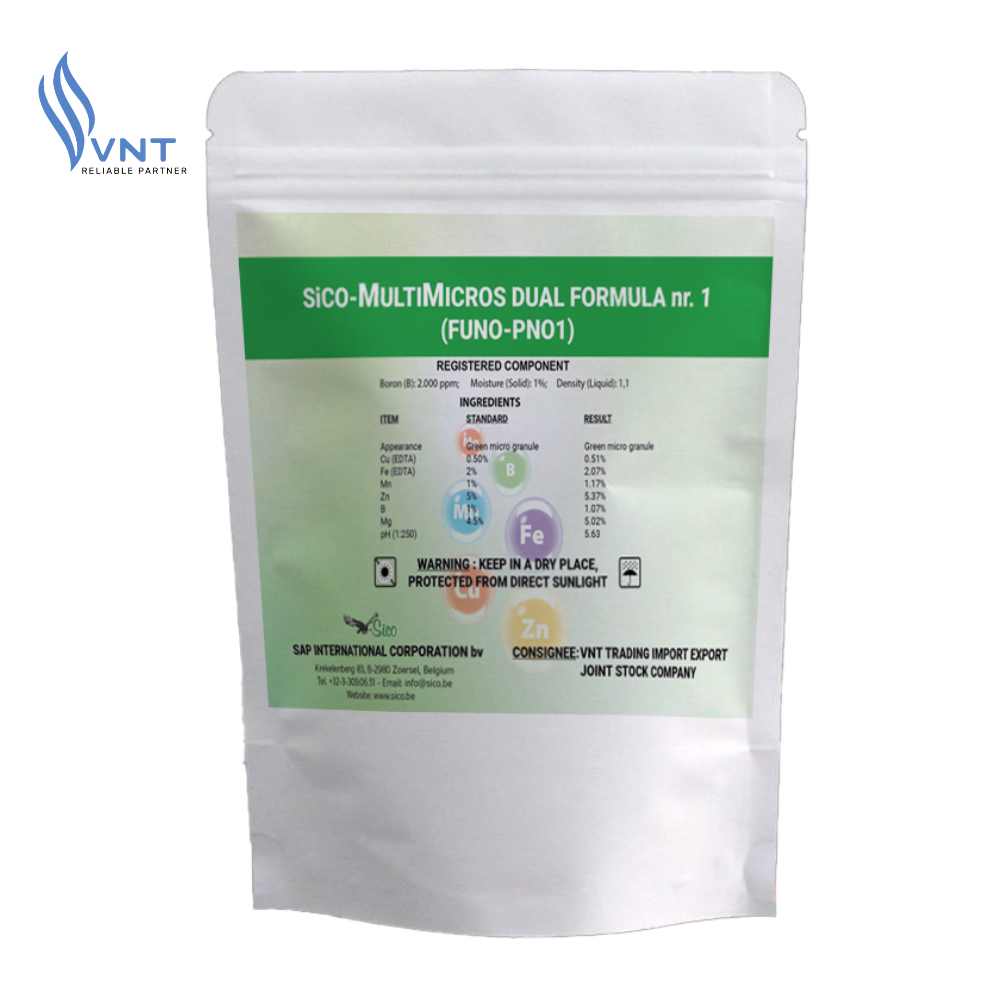
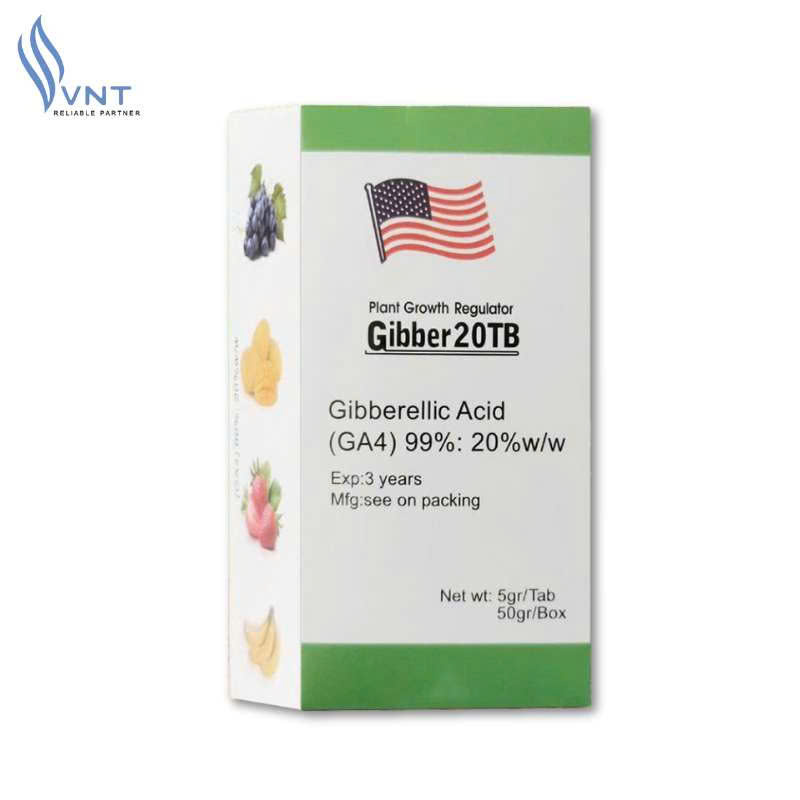
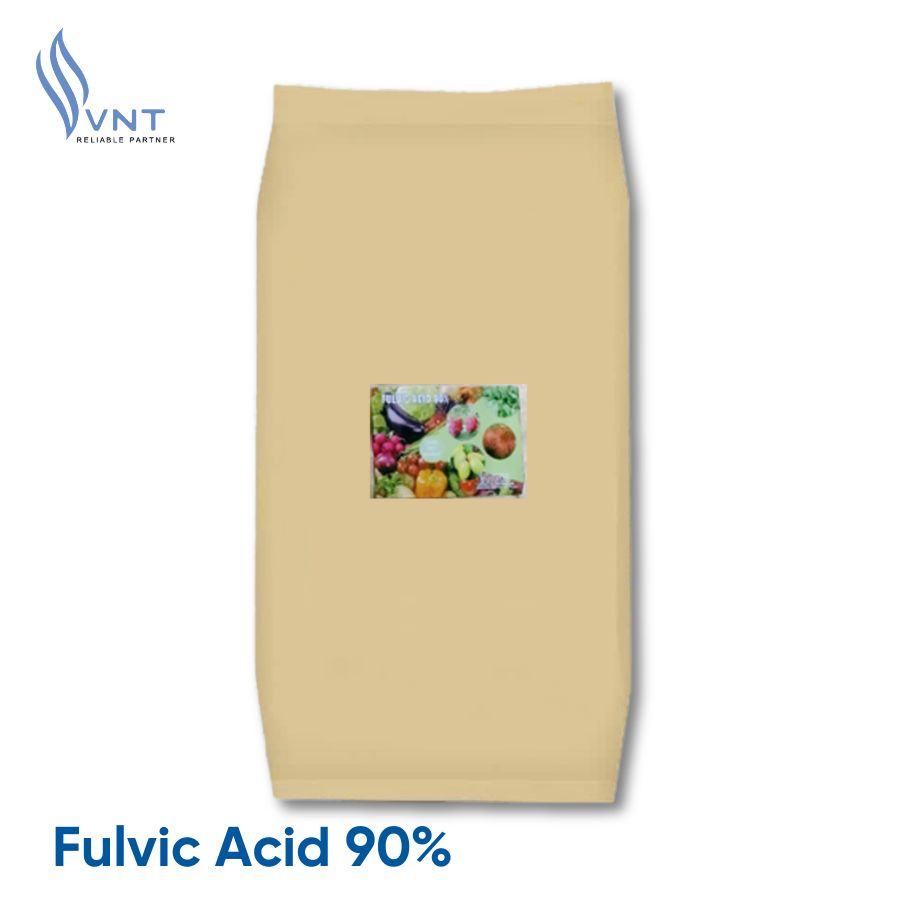
![[Q&A] How Long After Applying NPK Fertilizer Can You Eat Vegetables?](https://vntradimex.com/public/files/news/bon-phan-npk-cho-rau-bao-lau-thi-an-duoc-685e204cde416.jpg)

![[SHARE] How to use NPK fertilizer properly that everyone should know!](https://vntradimex.com/public/files/news/cach-dung-phan-bon-npk-dung-cach-682c46ab907d2.jpg)
